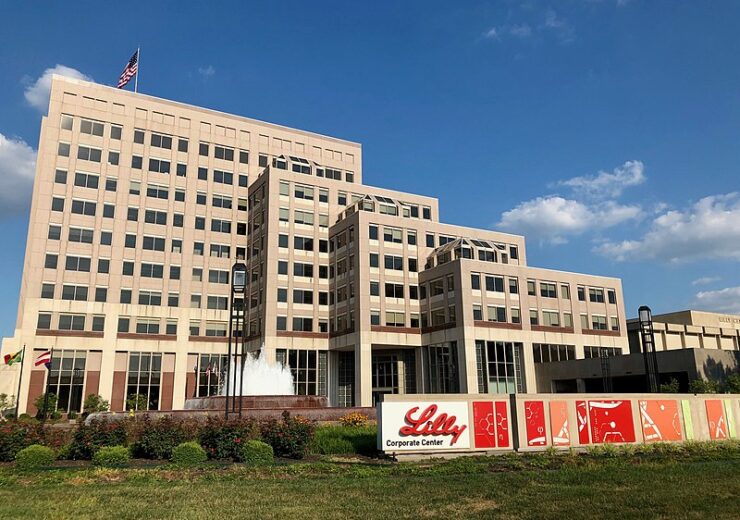Both Lilly and Innovent have been studying Tyvyt to treat non-squamous non-small cell lung cancer (NSCLC) and various other types of cancers

Eli Lilly and Company's Corporate Center in Indianapolis, Indiana. (Credit: Momoneymoproblemz/Wikipedia.)
Eli Lilly and Company (Lilly) and Innovent Biologics have expanded their licensing agreement for Tyvyt (sintilimab injection), an anti-PD-1 monoclonal antibody immuno-oncology medicine, to commercialise the drug outside of China.
Chinese biopharmaceutical firm Innovent and Lilly have initially reached a licencing partnership agreement in March 2015 to jointly develop Tyvyt in China.
The partnership has started commercialising Tyvyt in China from 2019, after securing marketing approval by the Chinese regulator NMPA for the treatment of relapsed or refractory classic Hodgkin’s lymphoma after at least two lines of systemic chemotherapy.
Under the terms of the expanded license agreement, Lilly will hold the exclusive license for Tyvyt outside of China, in exchange for $200m in upfront payment to Innovent. The company is planning to register the drug in the US and other markets.
Also, Innovent is entitled to receive up to $825m in potential development and commercial milestones, along with tiered double-digit royalties on net sales of the drug.
Lilly Oncology president Anne White said: “Lilly Oncology is dedicated to delivering life-changing medicines and support to people living with cancer and those who care for them. Our alliance with Innovent successfully brought Tyvyt to market in China.
“Through this expansion of our collaboration, we hope to make Tyvyt accessible to patients globally. We believe Tyvyt could deliver significant value to people living with cancer around the world and we intend to continue to study its potential across tumour types.”
Lilly and Innovent can evaluate Tyvyt combinations in their own clinical programmes
Both Lilly and Innovent will retain the right to evaluate Tyvyt in combination with other medicines, under their individual clinical programmes. The companies have been studying the drug to treat non-squamous non-small cell lung cancer (NSCLC) and various other types of cancers.
Recently, the companies unveiled promising interim analysis data from ORIENT-11, a Phase 3 clinical trial evaluating Tyvyt or placebo plus Alimta (pemetrexed for injection) and platinum chemotherapy to treat advanced or recurrent non-squamous NSCLC without sensitising EGFR mutations.
Tyvyt plus Alimta and platinum chemotherapy demonstrated significant improvement in progression-free survival than placebo plus Alimta and platinum chemotherapy, and met the pre-defined efficacy criteria, based on the interim analysis by the Independent Data Monitoring Committee.
The companies filed a supplemental New Drug Application (sNDA) for this indication, which is under regulatory review in China, and are planning to file submissions with the US Food and Drug Administration and other regulatory agencies.
The execution of the expanded licensing agreement is subject to customary closing conditions, including clearance under the Hart-Scott-Rodino Antitrust Improvements Act.
